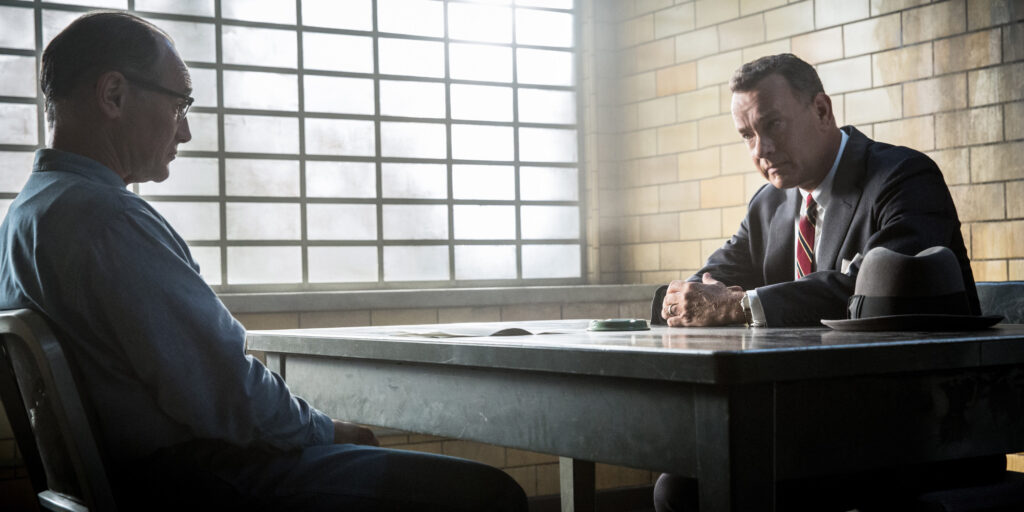The events of post World War II hold significant value in defining the dynamics of the modern geopolitical strategy. And to portray it an inch closer to the reality (at least from the American perspective) can only be done by Steven Spielberg. He has already done it in Saving Private Ryan and now again in Bridge of Spies. A political thriller such as this generally require the right mix of human emotions to be able to connect with the audience. Tom Hanks was his choice once but to bring him back again, would it help?
Of course, it would. Tom Hanks is a sort of actor whose natural instinct is to connect with the audience. He can deliver even if the screenplay falls short of expectations. And his latest assignment neither disappoint him nor the audience. The story is set during the later half of the 1950’s. James B. Donovan played by Tom Hanks was portrayed as an insurance lawyer with the conversation skills of a marketing professional. He would draw you into a conversation and would easily talk you out if necessary. His skills could even defend a case of five events for a case of only one. Meanwhile, a spy named Rudolph Abel (Mark Rylance) from the Soviet Union was caught by the FBI agents in Brooklyn, New York. The US government was only interested in showcasing a fair trial and so unfortunately hired Mr. Donovan. Everything was expected to go smooth but instead Mr. Donovan went deep into the details and got the government officials nervous. He was under heavy criticism in the US for supporting Mr. Rudolph Abel. What he did right was to convince the judge in a private conversation to at least keep Mr. Abel alive for any future transaction that may occur with the Soviet Union.
In a parallel universe, the US was planning to spy over the Soviet Union as well using a U-2 spy plane but the pilot, Francis Gary Powers played by Austin Stowell, got shot and captured. Mr. Donovan was brought right into the middle to strike a deal for the exchange of spies. He would have done it easily but he went on to put the deal as two-for-one. He wanted an American economics student as well who was wrongfully captured in East Berlin by the Stasi agents. Mr. Donovan’s farsightedness helped him to get over with the curse of criticism he was getting back home.
Though the movie is based partially on two books: Negotiator: The Life and Career of James B. Donovan and Strangers on a Bridge, The Case of Colonel Abel but can only be remembered for the great acting performances pulled out by Tom Hanks and Mark Rylance. Both were complementing each other with a superb skill-set of dialogue delivery. Also, a thrill in a cinematic shot was beautifully captured in the background score by Thomas Newman. All the aspects of film-making were captured right be it the direction, casting, acting, music, screenplay, or the cinematography. It is indeed a lesson for the new age film-makers about story-telling and is a welcome treat for the audience to see Mr. Hanks back on the big screen.
